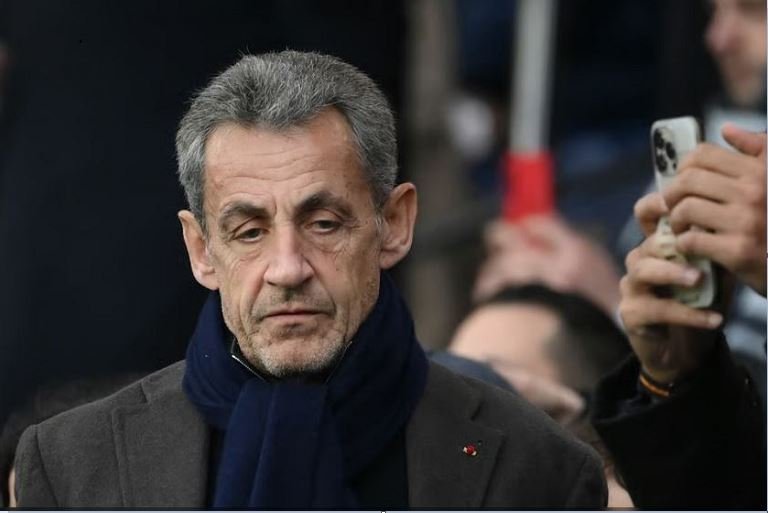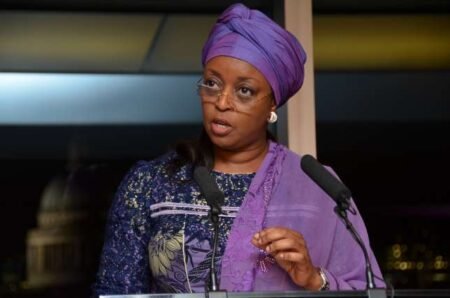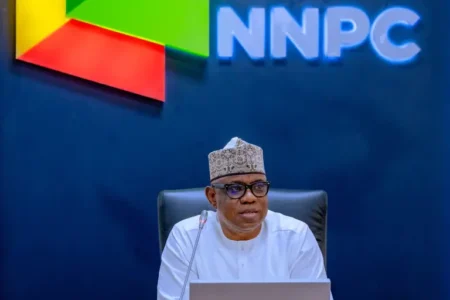Former French president Nicolas Sarkozy became the first former head of a European Union state to be imprisoned on Tuesday, declaring his innocence as he entered a Paris prison.
France’s right-wing leader from 2007 to 2012 was found guilty last month of attempting to obtain cash from Muammar Gaddafi’s Libya for the campaign that got him elected.
AFP journalists witnessed the 70-year-old, who has challenged the judgment, leaving his home and entering the French capital’s La Sante jail after a short drive flanked by police on motorcycles.
“Welcome, Sarkozy!” and “Sarkozy’s here,” AFP reporters heard convicts shouting from their cells.
Sarkozy denied all wrongdoing in a strong letter made on social media as he was transferred.
“It is not a former president of the republic being jailed this morning, but an innocent man,” he said on X.
“I have no doubt. The truth will prevail.”
In September, Sarkozy was sentenced to five years in prison for criminal conspiracy in connection with a scheme to fund the late Libyan tyrant Gaddafi’s electoral campaign.
Sarkozy stated that he will “sleep in prison—but with my head held high” following his conviction on September 25.
Dozens of friends and family members had gathered outside the former president’s home since early Tuesday, some holding framed photographs of him.
“Nicolas, Nicolas!” “Free Nicolas,” they yelled as he exited his house, holding hands with his wife, singer Carla Bruni.
Previously, they had performed the French national anthem as neighbors watched from their balcony.
“This is truly a sad day for France and for democracy,” said Flora Amanou, 41.
Sarkozy’s lawyer, Christophe Ingrain, stated that a request for his release had been made immediately.
The Paris appeals court has two months to determine whether to release him while awaiting an appeals trial, but the wait is frequently shorter.
“He will be inside for at least three weeks to a month,” Ingrain said.
Sarkozy is the first French leader to be imprisoned since Philippe Petain, the Nazi collaborator and head of state who was imprisoned after WWII.
He told Le Figaro newspaper he will be taking with him a biography of Jesus and a copy of “The Count of Monte Cristo,” a novel in which an innocent man is sentenced to jail but escapes to take revenge.
Sarkozy is likely to be held in a nine-square-meter (95-square-foot) cell in the prison’s solitary confinement wing to avoid contact with other prisoners, prison staff told AFP.
In solitary confinement, prisoners are allowed out of their cells for one walk a day, alone, in a small yard. Sarkozy will also be allowed to visit three times a week.
Sarkozy has faced a slew of legal issues since losing his re-election effort in 2012.
He’s also been convicted in two other cases.
In one, he served a graft term—for attempting to get favors from a judge—under house arrest while wearing an electronic ankle tag, which was removed after six months in May.
In another case, France’s top court will rule next month on allegations of unlawful campaign financing in 2012.
In the so-called “Libyan case,” prosecutors claim his advisers, acting on Sarkozy’s behalf, formed a pact with Gaddafi in 2005 to illegally fund his successful presidential campaign two years later.
Investigators think that in exchange, Gaddafi was promised assistance in restoring his international image after Tripoli was implicated in the 1988 bombing of a passenger flight over Lockerbie, Scotland, and another over Niger in 1989, which killed hundreds of people.
The court found him guilty of criminal conspiracy for the plan.
However, it did not determine whether Sarkozy received or used the donations for his campaign.
It acquitted him on counts of embezzling Libyan public funds, passive corruption, and illegal campaign funding.
Following his prior graft conviction, Sarkozy was stripped of France’s highest honor, the Legion of Honour.
According to a study of more than 1,000 individuals conducted by pollster Elabe, six out of ten French citizens thought the prison term was “fair.”
Sarkozy, on the other hand, retains support on the French right and has met privately with President Emmanuel Macron on several occasions.
Macron welcomed Sarkozy to the Elysee Palace on Friday, telling the press this week that “it was normal, on a human level, for me to receive one of my predecessors in this context.”










